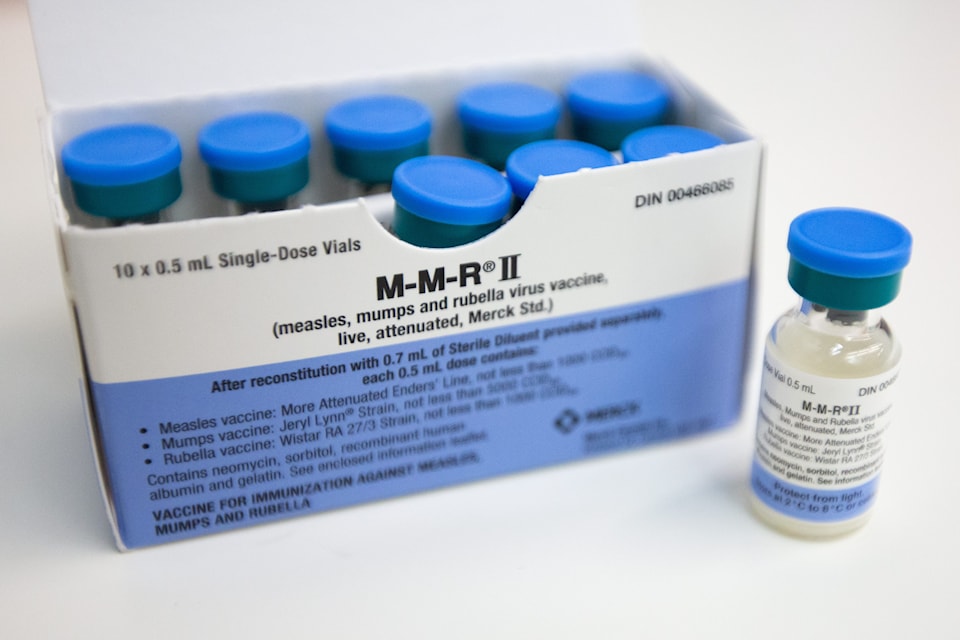Public health officials are raising the alarm as Canada sees a dramatic rise in measles cases, with more infections reported in the first three months of 2025 than in all of 2024.
The Public Health Agency of Canada says 615 measles cases, 514 confirmed and 101 probable, were reported nationwide as of March 22, with outbreaks concentrated in Ontario, Quebec, Manitoba and Alberta.
“We haven’t seen anything like this for decades, and it’s an embarrassment, really,” said Dr. Timothy Sly, a communicable disease expert and professor emeritus at Toronto Metropolitan University. “This should not have happened.”
The surge comes after years of declining childhood vaccination rates, exacerbated by the COVID-19 pandemic, which disrupted access to routine immunizations. Public health experts say many parents delayed or missed measles vaccinations for their children, and some communities remain under-vaccinated due to mistrust or misinformation.
Dr. Marina Salvadori, senior medical advisor with the Public Health Agency of Canada, said the outbreaks are mostly occurring in “very specific communities that have traditionally been under-vaccinated.”
Measles is one of the most contagious viruses in the world. According to the agency, more than 90 per cent of unvaccinated people exposed to the virus will become infected. Complications can include pneumonia, deafness, brain swelling and death.
Toronto Public Health confirmed two cases of measles in 2025 as of early April, both linked to travel. In 2024, Toronto saw 10 cases, double the city’s pre-pandemic annual average.
Health officials recommend two doses of a measles-containing vaccine, typically administered at 12 months and between the ages of four and six. One dose offers about 90 per cent protection, while two doses are nearly 100 per cent effective.
Canada’s national immunization target is 95 per cent coverage to ensure herd immunity. But Salvadori said most provinces report only 85 to 90 per cent coverage for children by age two and even lower rates for the second dose.
“We have to make sure people have access to the vaccine and the right information,” she said. “Misinformation and mistrust after the pandemic have made it harder, but we need to build confidence back.”
Sly said some outbreaks are linked to specific cultural or religious groups with historically lower vaccination uptake. He said cases in Ontario have been tied to some Mennonite communities.
“There’s no reason not to get vaccinated. The MMR vaccine is free, safe and highly effective,” he said. “But because we’ve dropped below that crucial threshold in some communities, measles is back.”
Both experts emphasized the importance of early detection and isolation. Symptoms typically begin with fever, cough, runny nose and red eyes, followed by a red rash that spreads from the face down the body. People are contagious from four days before the rash appears until four days after.
“The most important thing is to phone ahead to your healthcare provider, so you don't expose vulnerable people,” Salvadori said. “You could infect others just by being in the same room.”
Infants under 12 months who are too young for routine vaccination are especially vulnerable. In outbreak areas or before travel, they may be eligible for early vaccination starting at six months.
“Young children and the people who have transplants are more vulnerable,” Sly said. “The other 97 per cent of us have to protect these people and make sure the virus doesn't reach them.”
Despite rising cases, Salvadori said there is “plenty of MMR vaccine available in Canada” and urged Canadians to check their immunization records and speak to a healthcare provider if unsure.
“This is a preventable disease,” she said. “The best way to protect yourself and your community is to get vaccinated.”



